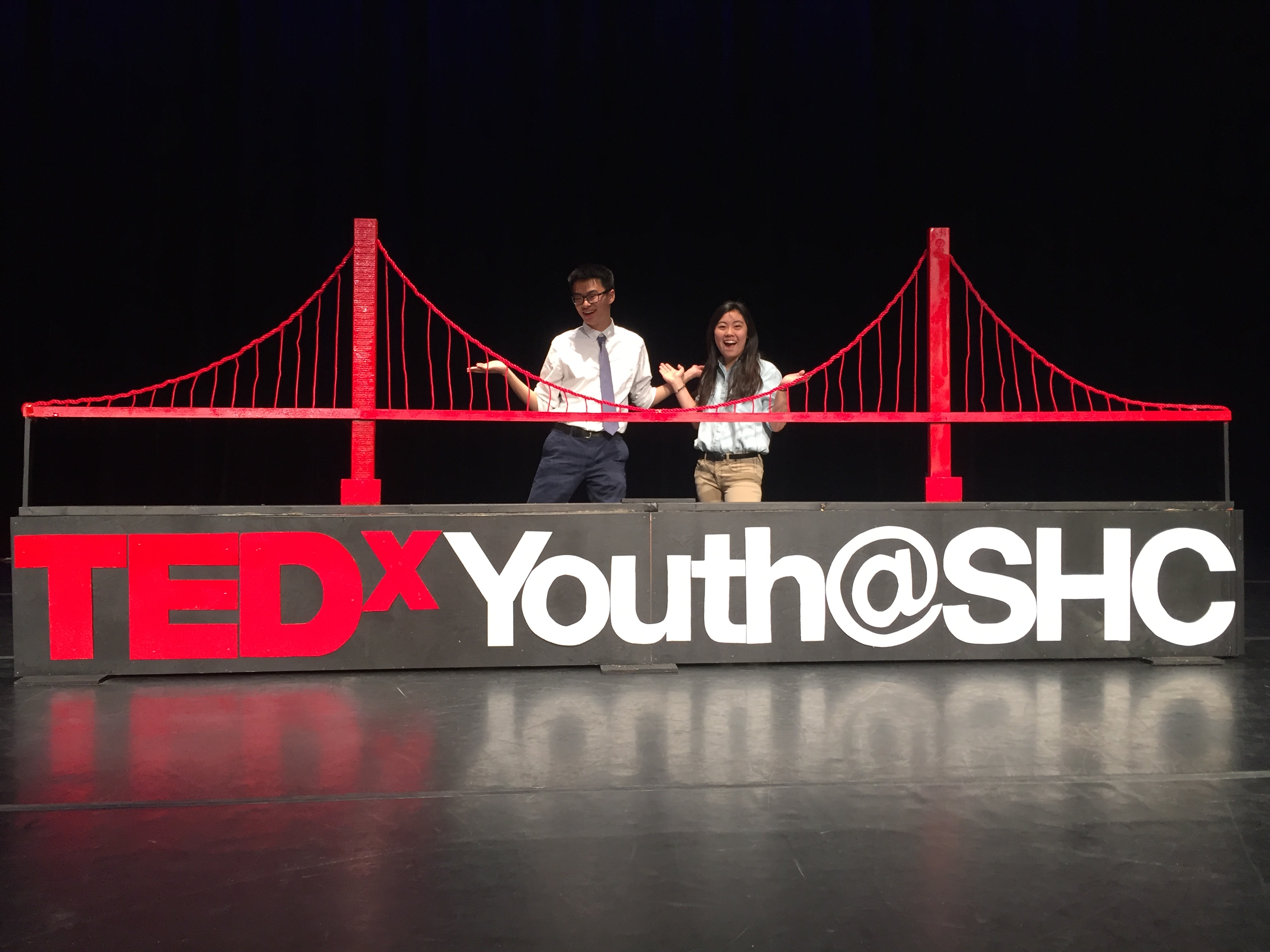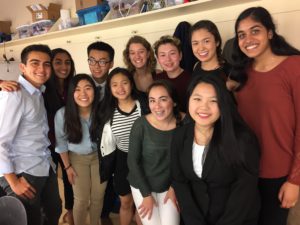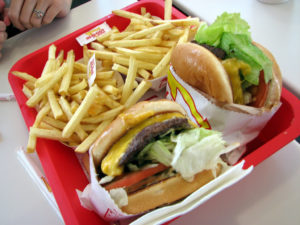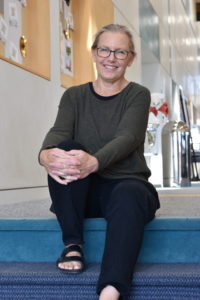
Photo by Erin Ogawa
I’ll be the first to admit it: I’m not the conventional public-speaking type. I often talk too quickly, fail to enunciate, and look a bit too angry to be able to reach out to an audience. It doesn’t help that I don’t exactly exude confidence either, and my onstage experience is minimal. With that in mind, it might surprise some that I applied for a TEDxYouth event.
TEDxYouth is exactly what it sounds like: it’s TEDx talks written, delivered, and produced by students age 12-18. Videos of the talks are uploaded to YouTube and the TED website.
I never took TEDxYouth as seriously as I did a “real” TED talk. My cynical self thought being a TEDxYouth speaker sounded slightly less amazing than the “real deal.”
So one might wonder why I bothered to try for TEDxYouth at all. After all, no life-changing event pulled me towards applying, nothing so inspiring that it compelled me to tell the world about my experiences. Instead, my encounter with TEDxYouth was almost by chance. Emily Fukuda ‘18, a junior at Sacred Heart Cathedral Preparatory, told me that TEDxYouth would be held at her school and she thought we should do a talk together. Plain and simple.
The process of coming up with an idea to present was, for me, the hardest part of applying. Fukuda and I ended up talking about the period of time when we dated (we have a strange relationship).
Other speakers got their ideas in different ways. Arrian Ebrahimi ‘18 from St. Francis High School adapted his talk about different religions coexisting from one he gave at his school’s interfaith prayer. Audrey Moore ‘18, from Campolindo High School, was signed up by her mother, who told her to find something productive to do. Moore talked about an organization she founded (when her mother told her to be productive then as well.)
The application process was relatively simple, with the usual questions (What are your interests? Why do you think your idea is important?) and a video explaining our qualifications taking up most of it. I sent our application to the TEDxYouth team feeling there was no way I would be giving a TEDx talk. Fukuda says, “I didn’t think about what would happen if we actually got picked…I had never spoken in front of such a large virtual and in-person audience.”
Several weeks later, 18 people received acceptance emails to TEDxYouth@SHC. Myself included, much to my surprise. When she got her email, St. Ignatius College Preparatory senior Mei Tam ‘17 felt “dread overwhelm [her],” but “it was all washed away. Passion consumed [her] when [she] began to write.” She spoke about Asian American representation and identity.
Fukuda and I spent several days writing until we had an inkling of a presentable talk on our hands, and after practicing with some friends, we took it to the TEDx team for two workshopping sessions. St. Francis High School freshman Aishani Aatresh ‘20, who wrote about dealing with extreme allergies, comments on her process. “I started by writing notes about what I wanted to include and doing four drafts of that…I got some feedback from teachers, students at school, and my parents and edited. I got some feedback from the TEDx team and edited more. They were incredibly helpful.”
The week before the event, I found my presenting skills as unrefined as ever. Fortunately, the TEDx team and luck were on my side. Through extensive blocking lessons, vocal warm-ups, and tech rehearsals, Fukuda and I were able to create a stage presence for ourselves that emphasized the “cuteness” of our relationship, as one TEDxYouth@SHC co-leader put it.
But what probably helped alleviate my fears most were the other speakers. My talk-partner Fukuda explains it best: “All these intelligent, talented, and well-spoken teenagers intimidated me, but after talking together about our love for dogs, 80s music, pizza, and random YouTube videos, we really were a family. We bickered, we laughed, we loved sharing this amazing experience with each other.”
Ebrahimi comments on the inspiration other speakers gave him. “Something about being on a team of people who each have something so deep to offer really makes you feel

Photo by Tara Downey
proud,” he says. Eventually, we were reciting talks to each other, blasting crappy music in the dressing rooms, and doing yoga in the theatre lobby. The stresses from the looming TEDxYouth event seemed to disappear in each other’s company.
The morning of the event was met with five a.m. sleepiness and perhaps too much coffee to compensate for it. After a pep talk by TEDxYouth@SHC co-leaders Ms. Kathy Lorentz and Mr. Dabney Standley, we were sent to our dressing rooms to wait for our turn to speak. I killed time by talking with other speakers, practicing with Fukuda, and reading Toni Morrison’s Song of Solomon. Even at a TEDx event, I couldn’t escape the academic demands of Lick-Wilmerding.
For St. Francis High School senior Anjana Iyer ‘17, who discussed the significance of film soundtracks, “a couple of things started to go wrong. My makeup got messed up and I was forgetting parts of my talk. But when I walked on stage, none of that mattered, because I was talking about something I really loved.”
Six hours into TEDxYouth @SHC (yes, these events are long), it was time for me and Fukuda to give our talk. She notes, “while Alex and I were backstage, I felt my anxiety skyrocket. But I just looked at my best friend Alex and he gave me a big hug of reassurance.” I, of course, was still nervous: What if my mic stops working? I thought. What if people laugh at my flipper-like walk? And of course, what if I mess up?
The bright stage lights blinding us from afar, we walked onto the big red carpet and started talking. Every word of our talk came almost naturally. We’d written this talk, polished it, practiced it for months; why wouldn’t it feel natural? I knew this thing like the back of my hand.
Well, at one point, I didn’t. I messed up a line.
A flubbed line may not change the fate of the universe, but standing up there I felt such fear that I froze trying to decide how the hell I would get myself out of this one.
My solution? I ended up making a joke at my expense. The audience laughed, and the talk proceeded. No more lines were flubbed.
Ironically, it was after I messed up that I had a revelation. I had gone into TEDxYouth skeptical, yet after months of writing and rehearsing, TEDxYouth didn’t seem like the watered-down TED event I’d perceived it to be. I realized it didn’t matter that my talk wouldn’t be the most-viewed video on YouTube, that it probably would never be shown in a classroom, that Fukuda and I wouldn’t be breaking headlines with a talk about our friendship. It didn’t have to be a big deal to everyone else. It was a big deal to me and to the other speakers. I’d grown so much from being someone who could barely present a shoddy PowerPoint to a class to someone giving a TEDx talk that would be seen around the world. My presenting skills still aren’t perfect, but they’ve improved. And though I botched a line, my quick improvisation told me that I’d come a lot farther than I thought I had.
For Aatresh, the friends she made were her main takeaway. “I wouldn’t trade this experience for anything in the world. I hope to come back and stay involved by helping with the event and maybe bringing something similar to St. Francis.”
Tam says, “nothing will beat the pride after I gave my talk when I realized: ‘I did it.’”
Time has passed since TEDxYouth @SHC, and everything is still overwhelmingly normal. I’m still scrambling to pull test scores up, to finish my final history research paper on time, and to maybe get eight hours of sleep just once. But TEDxYouth made me a little more confident in myself, my presentation skills, and my ability to contribute to the world. The lesson for me was a redefinition of a “big deal,” no longer just quantitative amounts of page views or crowds but instead by the impact on myself and the people around me. My talk didn’t send huge shockwaves or ignite fiery debate, but it did help me grow as a person.






